#pluriverse
Text

Intersectionality is at the core of the revolution.
#interseccionalidad#intersectionality#justicia social#social justice#normativa#normativity#pluriverse#pluriversalidad#typography#naes grafika
1 note
·
View note
Text

Arturo Escobar, Designs for the Pluriverse: Radical Interdependence, Autonomy, and the Making of Worlds (Durham and London: Duke University Press, 2018).
'Today, difference is embodied for me most powerfully in the
concept of the pluriverse, a world where many worlds fit, as the Zapatista put it with stunning clarity.' xvi
'[...] designs for the pluriverse becomes a tool for reimagining and reconstructing local worlds.' p.4
''[…] autonomous design as a particular ontological design approach in dialogue with the transition visions and design frameworks. The basic insight is, again, seemingly straightforward: that every community practices the design of itself.' p.5
'A fundamental aspect of autonomous design is the rethinking of community or, perhaps more appropriately, the communal; this rekindled concern with the communal is in vogue in critical circles in Latin America and in transition movements in Europe concerned with the relocalization of food, energy, and the economy and with transition towns and commoning, among others.' p.5
'This proposition will serve as a partial anchor for proposing a par tic u lar practice and way of thinking about the relation among design, politics, and life, to be called autonomous design.' p.5-6
'Readers might rightly wonder what these ideas about autonomy, relational living, and so forth have to do with design, ontological or otherwise. Moreover, is autonomous design not an oxymoron? The possibility I am trying to ascertain is quite straightforward in principle: whether some sort of ontologically oriented design could function as design for, and from, autonomy. Here again we confront one of the key issues of this book: can design be extricated from its embeddedness in modernist unsustainable and defuturing practices
and redirected toward other ontological commitments, practices, narratives, and performances? Moreover, could design become part of the tool kit for transitions toward the pluriverse? What would that imply in terms of the design of tools, interactions, contexts, and languages in ways that fulfill the ontological design principle of changing the ways in which we deal with ourselves and things so that futuring is enabled?' p.15
'The book should thus be read as constructed along three axes: ontology, concerned with world making from the perspective of radical interdependence and a pluriversal imagination; design, as an ethical praxis of world making; and politics, centered on a reconceptualization of autonomy precisely as an expression
of radical interdependence, not its negation.' p.21
'Discussions of the relation between design and politics reflect the fact that design has become a formidable political and material force; the corollary is whether design is becoming, or can become, a promising site for the transformation of the entrenched cultures of unsustainability toward pluriversal practices. Reframing design practice ontologically is intended as a contribution to this discussion. It is also an attempt to locate design politics in its capacity
to generate new entities and relations, that is, to unveil design’s capacity “to ‘propose’ new kinds of bodies, entities and sites as political”, thus expanding established understandings of the political.' p.59
'[…] pluriversal, that is, as fostering the coexistence of multiple worlds. By resisting the neoliberal globalizing project, many marginalized communities are advancing ontological struggles for the perseverance and enhancement of the pluriverse.' p.70
'A corollary of this conceptualization of modernity/coloniality is that the very process of enacting it always creates types of “colonial difference”— encounters, border zones, processes of
resistance, hybridization, assertion of cultural difference, or what have you—where dominant modern forms fail to fulfill themselves completely as such, revealing simultaneously the arbitrariness (and often brutality) of many aspects of the modern project, and the multiple assertions of pluriversality, what in the decolonial perspective is called “worlds and knowledges otherwise.” We will discuss later on the implications of the colonial difference for ontological design and designs for the pluriverse.' p.94
'In both academic and activist worlds, we are witnessing a renewed interest in the subordinated side of the dualisms across an entire spectrum of their manifestations, a sort of return of the repressed sides of the pairs as important dimensions of what constitutes life itself— for example, growing attention to emotions, feelings, the
spiritual, matter, nonscientific knowledges, body and place, nonhumans, inorganic, life, death, and so forth. Taken together, the recent emphases can be seen as mapping an emerging ontological- political field with the potential to reorient cultural and social practice in ways that clearly foster the intersecting goals of ecological sustainability, social justice, and pluriversality.' p.95
'In The Darker Side of Western Modernity, the decolonial theorist Walter Mignolo (2011) identifies five global trajectories that, in his view, shape possible futures: de- Westernization, re- Westernization, reorientations of the Left, spiritual options, and decolonial options. The latter two can be seen as “roads to re- existence delinking from the belief that development and modernity are the only way to the future”. Which future prevails will depend on the struggles and negotiations among these trajectories, likely without a winner. “If there is a winner,” Mignolo adds, “it would be the agreement that global futures shall be polycentric and noncapitalist. Which means that a struggle for world domination . . . would yield to pluriversality as a universal project”. Citing Humberto Maturana’s maxim that “when one puts objectivity in parentheses, all views, all verses in the multiverse are equally valid. Understanding this, you lose the passion for changing the other”, Mignolo goes on to expound the decolonial option as the clearer path toward the pluriverse.' p.205
'A pluriversal attitude in relating to indigenous groups who defend mountains or lakes on the basis that they are “sentient beings” or
“sacred entities” (our modern translation) would allow mountains or lakes to be what they are, not mere objects or independently existing things; above all, it would suspend the act of translating these arguments into “beliefs,” which is the main way in which moderns can accommodate them from the perspective of an ontology of intrinsically existent objects or nonhumans. Clarity about
these issues of partial connection and translation is essential in design activities in pluriversal contexts.' p.217
'My concern with the risks of pluralizing modernity has benefited greatly from discussions with friends in several parts of the world. These friends rightly point, conversely, at two risks in the pluriversal position: the alterization of difference (locating difference, and hope for change, in the more clearly identifiable subaltern groups, such as ethnic minorities) and the tendency to treat modernity as hegemonic and homogeneous. All worlds have to be historicized deeply— all worlds ( whether traditional or modern) contain a judicious mix of the
good, the bad, and the ugly.' p.256
0 notes
Text
Our Life as a Multiverse
It felt essential to have a first contribution sharing my philosophy on the multitude of narratives out there in the big wide world, which in itself shapes my worldview, and positions me in matters that present themselves.
The title, multiverse, is an objection to the word 'universe', which to me implies generalisation. As if the way all of Earth's inhabitants experience life is, or should be, identical. I believe in something rather the opposite, meaning there is no one way to live (well) in this world, and feel a strong aversion to any one-size-fits-all approach. Our western beliefs are based on science, that which the eye can perceive or our instruments can measure, and the more we learn, the less magical this place seems to become. We try to organise the mystery that is life, and create polar opposites that can be placed along the x and y-axis.
I recently started a master programme in sustainable development, for which I moved to Sweden in my trusty home on wheels. We began the course by discussing how to define the terms ‘sustainable’ and ‘development’, and whether they are essentially concepts created through practice and discourse. Personally, I do not believe most of the popular future pathways (green economy; renewable energy; technology based solutions; generally continuing growth while not looking into changing our lifestyles) are sufficient to solve our planetary troubles in a truly sustainable way. Other posts will be dedicated to what my wild imaginings might then be, but I would like to point you to a specific book that offers me consolation and inspiration. It is called ‘Pluriverse - A Post-Development Dictionary’ (Kothari et al., 2019) and starts out in a similar way to how I started this writing, which is what caused me to dig up the old draft that was the foetus of this post. Authors of the bundled essays offer brief introductions of alternative paths into a future that embraces ecological wisdom, social justice, and challenges the western standard of living that is used synonymously with the quality of life.
Living amongst people who share similar beliefs and values has been a nurturing experience for me - bodily, mentally and spiritually. And by no means have we steered away from challenging each other. On the contrary, safe and respectful spaces offer room for challenging conversation! I have gradually come to exist in what feels like a different dimension compared to a few years back. The "status quo" is something I have ventured from. It was ill-fitting, yet now I struggle to put into words why and how this has happened, and is happening. Because it is not simply a matter of adjusting a few habits: it is uprooting whatever currently gives you structure, then sprouting anew from the seed. Which might just be what our species needs.
I am still learning to dance the line between respecting the existence of different worldviews, and challenging any bias that comes with it. Both within myself and in others. Though I find it difficult, challenging is perhaps equally important as respecting different visions, because our values are constantly transforming. We are many souls sharing a single planet. The ability to understand, or at least respect, someone else’s core values is more likely to result in mutualistic symbiosis. If we would spend more time perceiving the world around us through engaging our senses, stripping away judgement and character roles as the old, well-worn clothes they are, we may find that the realities we experience aren't so different after all.
Perspective is an attitude. Calm acceptance follows when you learn to see life as it presents itself: a multiverse, perceived differently by every individual. You can continuously be amazed by everything life on Earth is capable of. Because the moment you think you understand her, she has shifted shape.
by NJ
0 notes
Photo
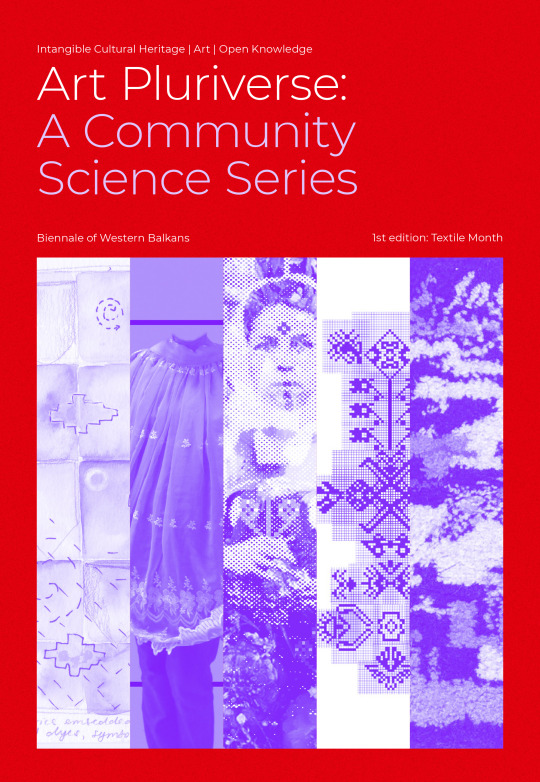

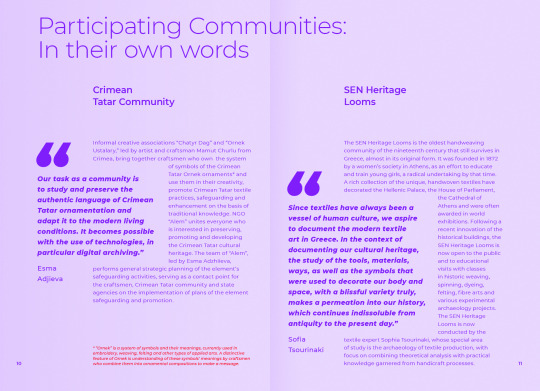
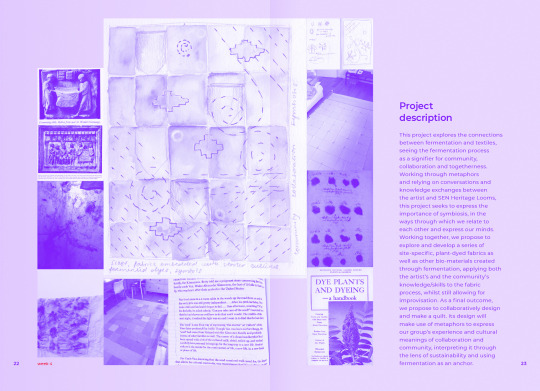


Project: Digital zine “Art Pluriverse: A community science series”
Year: 2021
Client: Biennale of Western Balkans (Pluriverse Publications)
- - -
Cover & layout co-design (with Panayiota Theofilatou as “These Are A Few Of Our Favorite Things”) for the digital zine “Art Pluriverse: A community science series” for Biennale of Western Balkans curated by Mariana Ziku, Elli Leventaki, Artemis Papageorgiou & Katerina Zachou.
You may read and download the whole edition, here.
#These Are A Few Of Our Favorite Things#Cover design#Layout design#layout#digital zine#zine#BOWB#Biennale Of Western Balkans#Pluriverse Publications#Art Pluriverse#works
2 notes
·
View notes
Text
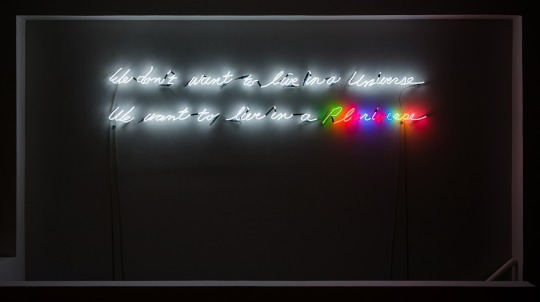
Warren Neidich. We don't want to live in a Universe, We want to live in a Pluriverse
3 notes
·
View notes
Text
the Ecological Lord's Prayer
Cláudio Carvalhaes, Ritual at World's End
Our God, who art in pluriverses, the skies and the earth,
Blessed be Your name: Life. May Your pulsing life come to be seen, heard, touched, and felt through the oceans, the forest, in the rocks, in the life of plants, and in the sounds of animals and singing birds.
Give us this day our daily bread, through a variety of seeds and grains and leaves, without pesticides, without monocultures, from local farms, and from agro-biodiverse-cultures.
Forgive us our plundering of the earth, our total lack of relation and reciprocity with the earth and more than human beings; as cells, mycelium, fungi, and infinite processes of symbiosis, forgive us daily by giving back life when we destroy it.
Lead us not into consumerism and the devouring of the earth, but deliver us from the apathy that says nothing can be changed.
For Life is kinship, relationality, and reciprocity.
Now and forever.
Amen.
#divinebeloved#theology#catholic#christian#lord's prayer#christianity#prayer#environment#environmentalism#ecotheology#ecoprayer#ritual#ecological#progressive catholic#progressive catholicism#catholicism#praying#pray#christ jesus#environmental prayer#eco theology
5 notes
·
View notes
Text
THE SHOWER THOUGHTS ARE BANGING TONIGHT BOYS
OK i like have to write this down bc i might forget but basically I have this idea for some sort of deity group and they like move from world to world (like welcome home, fnaf, undertale) and like make a person to be in the world?
Hear me out so basically like they make a person to fit in the world and like… like they have to blend in and whoever finds out ‘disappears’ from the world for a while and comes back after being missing, but they were really just being like.. Rebooted? Something like that
Anyways these guys can like shapeshift and their OG form is this like, shadow person
And not all have malicious intent, some just want a story to be a part of or a place to belong which makes some good potential for redeemable villains
AND THEYRE CALLED PLURIVERSERS OR DIMENSION DRIFTERS :O
4 notes
·
View notes
Text

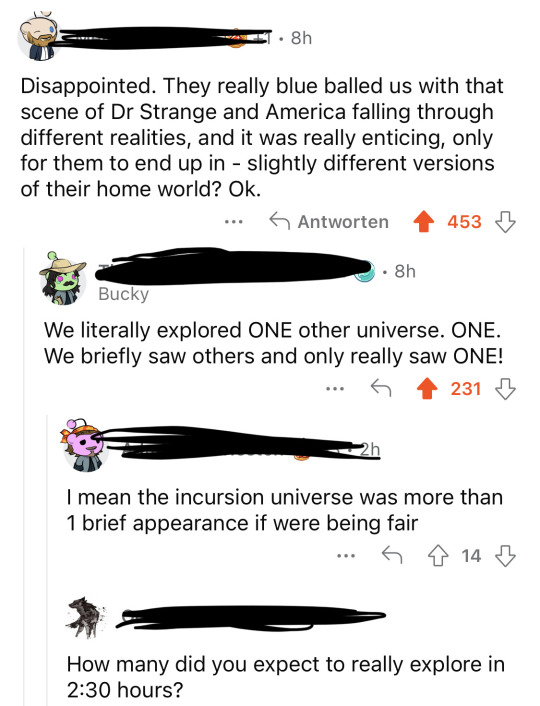
Dr. Strange and the Pluriverse of Madness. 😔
2 notes
·
View notes
Text
Snob
As we sit
We godly gaze
We all are better than
Her / Him / Them All
Our tongues, our schools
Our currencies, our homes
The rest is
typo
illiterate
knocked down
overpopulated
I scratch they can’t
I correct they don’t
I ask they won’t
I choose they shan’t
The stories I tell myself
While pluriversal dimensions in fact
belie
exceed
surpass
Even me
Parking a paradise
Pekmez a poet
Hope is punk
Not me
2 notes
·
View notes
Text
13.5
Story is roughly the same
Narration is different
Immersion - in a world with so much speed and distraction, to create more engagement and deeper engagement
Pluriversal
Storytelling/narration
Technology to align differences, and encompass greater truths
Tree as metaphor for connection
Transmedia as pluriversal storyteller? Multivocal storyteller?
Common roots of story
Different branches, but comes back to the root
I'm not the storyteller, I'm feeding the device
Demand for this content through testing and user research
Lidar
Drones
Underground scanning/cameras
Why do.i need many different mediums to tell this story? Is it truly transmedia if there are many different stories?
0 notes
Text
Ten Students Join the 2024 UMass Boston Transdisciplinary Dissertation Proposal Development Program Summer Institute
The Office of Graduate Studies, McCormack Graduate School of Policy and Global Studies, the College of Liberal Arts, the College of Education and Human Development, and the College of Science and Mathematics are pleased to announce the 2024 cohort of the UMass Boston Transdisciplinary Dissertation Proposal Development (TDPD) program Summer Institute.
The TDPD program is designed for students who plan to defend their dissertation proposals during the next academic year. These 10 exceptional students have been selected among a large and highly competitive pool of candidates from across the University. In addition, this year, we selected students whose projects help to address one or more of UMass Boston’s Grand Scholarly Challenges.
Using inter- and transdisciplinary approaches, the TDPD Summer Institute helps students develop competitive proposals for external funding, increases their support networks, and provides career development guidance. Over the summer, students will conduct preliminary research to support their proposal development. Following the Summer Institute, students will receive $3,000 in summer research funds to support their dissertation proposal development.
The 10 Summer Institute fellows for 2024 represent eight graduate programs across the University. These fellows are:
Mahesh Admankar (Public Policy, McCormack School)
Topic: how business advocacy organizations in Massachusetts address social justice issues
Leigh Bennett (Higher Education, College of Education and Human Development)
Topic: how craft-based pedagogies and makerspaces contribute to a "pluriversal" framework for writing
Jacqueline Campo (Applied Linguistics, College of Liberal Arts)
Topic: the experiences, identities, language practices, and educational trajectories of Quechua people
Carminia Lisette Castillo (Urban Education, Leadership, and Policy Studies, College of Education and Human Development)
Topic: multifaceted experiences of Dominican students in educational settings, particularly in classrooms led by white, female, and monolingual teachers
Wonguk Cho (Applied Linguistics, College of Liberal Arts)
Topic: relationship between language policies and language practices nationally and within families related to a recent growth in immigration of temporary workers to South Korea
Carl Cowan (Global Governance and Human Security, McCormack School)
Topic: the role of human rights in health care response to disasters
Shauna Murray (Global Inclusion and Social Development, College of Education and Human Development)
Topic: how early childhood development programs can contribute to shifting gender norms within the home and community in Rwanda
Adebobola Omowon (Global Governance and Human Security, McCormack School)
Topic: e-wars, or the ways that tensions and conflicts related to past civil war in Nigeria play out online
Melba Sosa (Integrated Biosciences: Bioinformatics, College of Science and Mathematics)
Topic: identifying and developing microbe-based interventions that enhance the resilience and function of coastal ecosystems facing urbanization impacts
Ievgeniia (Eve) Zasoba (Sociology, College of Liberal Arts)
Topic: Ukrainian war-induced migration and how refugees navigate different state systems
Professor Rosalyn Negrón (Anthropology) and Professor Elizabeth Sweet (Anthropology) will be this year’s faculty facilitators. The Office of Graduate Studies and the College of Liberal Arts support the TDPD program. Congratulations to the 2024 fellows!
0 notes
Text

Design reflects society. Therefore, the concepts we use when speaking of intersectionality also apply to design, both in a normative and disruptive way.
Just as normativity is inherent to design, so are protest and revolution.
Design has an essential role in detecting sociocultural changes in order to promote dialogue and social acceptance.
Publicación completa:
#design#interseccionalidad#intersectionality#normativa#normativity#social justice#justicia social#pluriverse#pluriversalidad#diseño inclusivo#inclusive design#diseño neutro#neutral design#genderless design#the future of design#fanzine#zine#naes grafika#designer thoughts
0 notes
Text
Process and Difference in the Pluriverse: Plato, William James, & W.E.B. Du Bois
I’m sharing the lecture from the first module of my course this semester at CIIS.edu, PARP 6135: Process and Difference in the Pluriverse. The lecture discusses Plato’s Republic, William James’ pluralism, and W.E.B. Du Bois’ critical inheritance of James’ philosophy.
https://matthewsegall.files.wordpress.com/2018/02/mod-1-lecture-parp-6135.m4a
Here’s a PDF transcript of the lecture
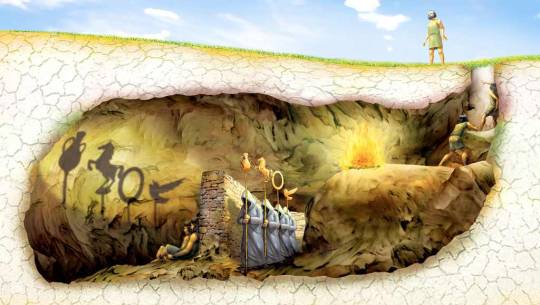
View On WordPress
0 notes
Text
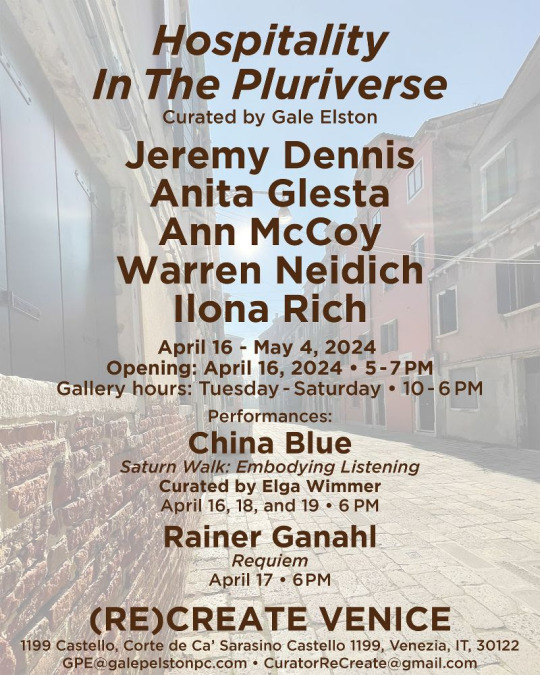
Anita Glesta (A '77)
Hospitality in the Pluriverse
Gallery Re(create)
Corte de Ca’ Sarasino, Castello 1199, Venezia, IT, 30122
April 16–May 4, 2024
Opening April 16, 5 to 7 PM
0 notes
Text
youtube
Social Tipping Points | Erin Remblance
Here’s the good news: People can change—quickly.
Sometimes it feels impossible to imagine anything other than collapse with the way our energy systems are designed, the corruption in governance, and the financial motives which skew the present system towards profit over everything else. It’s true that if nothing changes, the global system will collapse. But it’s also true that people are capable of amazing feats of imagination and adaptation—especially social imagination.
This week I’m joined by Erin Remblance, degrowth advocate and co-founder of ReBiz, an “un/school” designed to equip all people with the worldview and skills to create regenerative and pluriversal post-growth futures. ReBiz offers a core course on social tipping points and Erin joined me to discuss exactly that: What are social tipping points? And, importantly, how do we create them? This is a conversation about technology, economy, imagination, politics and a just transition—because most people are good people.
0 notes
Text
Pluriversal zusammenarbeiten
Es ist eine Idee, die seit vielen Jahren heranreift …
und nun schaffen Begegnungen an der Uni Bonn schon Möglichkeiten für weitere Austauschprojekte, in die andere Gruppen und Träger mit einsteigen können:
Das Pluriversum als Ausweg
Universum hieß es früher, nun denken wir in der globalen Welt weiter, was auch vor der Kolonialisierung an anderen Denkweisen und Kulturen, Gemeinschafts-Ordnungen…

View On WordPress
0 notes